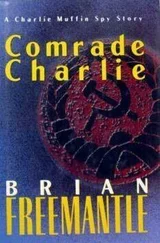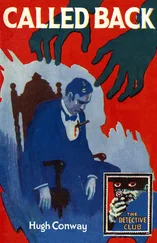Albert Edwards - Comrade Yetta
Здесь есть возможность читать онлайн «Albert Edwards - Comrade Yetta» — ознакомительный отрывок электронной книги совершенно бесплатно, а после прочтения отрывка купить полную версию. В некоторых случаях можно слушать аудио, скачать через торрент в формате fb2 и присутствует краткое содержание. Жанр: foreign_antique, foreign_prose, foreign_sf, на английском языке. Описание произведения, (предисловие) а так же отзывы посетителей доступны на портале библиотеки ЛибКат.
- Название:Comrade Yetta
- Автор:
- Жанр:
- Год:неизвестен
- ISBN:нет данных
- Рейтинг книги:4 / 5. Голосов: 1
-
Избранное:Добавить в избранное
- Отзывы:
-
Ваша оценка:
- 80
- 1
- 2
- 3
- 4
- 5
Comrade Yetta: краткое содержание, описание и аннотация
Предлагаем к чтению аннотацию, описание, краткое содержание или предисловие (зависит от того, что написал сам автор книги «Comrade Yetta»). Если вы не нашли необходимую информацию о книге — напишите в комментариях, мы постараемся отыскать её.
Comrade Yetta — читать онлайн ознакомительный отрывок
Ниже представлен текст книги, разбитый по страницам. Система сохранения места последней прочитанной страницы, позволяет с удобством читать онлайн бесплатно книгу «Comrade Yetta», без необходимости каждый раз заново искать на чём Вы остановились. Поставьте закладку, и сможете в любой момент перейти на страницу, на которой закончили чтение.
Интервал:
Закладка:
"Workingmen of all countries, unite! You have nothing to lose but your chains. You have a world to gain!"
Dr. Liebovitz rose when Braun sat down. He was a smooth-shaven, amiable-looking man, but he spoke with a bitterness in striking contrast to his appearance.
"The bosses do more than cheat you. They're not only thieves – they're murderers! I'm a doctor. Day and night I go about through this district with a bag of medicine and surgical instruments trying to save the lives of people – men and women and newborn babies – who would never be sick if it was not for the crimes of capitalism!
"Tuberculosis! How many of you are there in this audience who haven't lost a relative from lungs? As I sat here a moment ago I heard at least a dozen tubercular coughs. It's preventable – it's curable. There's no reason why any one should have it – less still that any one of you should die of it – if Capitalistic Greed didn't force you to live in rotten tenements, to work long hours in worse shops.
"Unless you people who are here this evening – and all the working people – make up your mind to make it impossible for some people to get fat off your misery, unless you get together to overthrow Capitalism, to establish Socialism, some of your babies are going to die of impure milk, others of adulterated food, more of T. B. Unless we can put these murderers out of business there will never be an end to this horrible, needless, inexcusable slaughter."
Miss Train spoke when he had finished. She made no pretence of oratory, did not seek to move them either to tears or anger. She tried to utilize the emotions stirred by the other speakers, for the immediate object of the meeting – raising funds for the "skirt-finishers." A collection would now be taken up. Mr. Casey, the secretary of the Central Federated Union, had promised to address them. He had not yet come. She hoped he would arrive while the girls were passing the hat.
"For Gawd's sake," Harry said, "come on. This is fierce."
"No," Yetta replied, jerked down from the heights by his gruff voice. "I want to hear it all."
She had listened spellbound to the speakers. Never having been to a meeting, she had never heard the life of the working class discussed before. Almost everything they said about the "skirt-finishers" applied equally to her own trade. Jake Goldfogle was grinding up women at his machines to satisfy his greed. Before, he had seemed to her an unpleasant necessity. Now he took on an aspect of personal villainy. He was not only harsh and foul-mouthed and brutal, he was robbing them. Cheated at home by her relatives, at the shop by her boss, what wonder her life was poverty stricken!
A strange thing was happening to Yetta. The champagne which Harry had urged on her was mounting to her brain. She had not taken enough to befuddle her, but sufficient – in that hot, close hall – to free her from her natural self-consciousness, to open all her senses to impressions, to render her susceptible to "suggestion." This, although Harry did not understand psychology, was why he had urged it on her. But his plan had "gang aglee." The alcohol was working, not amid the seductions of a brightly lighted, gay ball-room, but in this sombre, serious assembly. The "suggestions" which were flowing in upon her receptive consciousness were not the caresses of a waltz. She was being hypnotized by the pack of humanity about her. She was becoming one with that crowd of struggling toilers, one with the vast multitude of workers outside the hall; she was feeling the throb of a broader Brotherhood, in a way she never could have felt without the stimulation of the wine.
One of the speakers had alluded to the evil part in the sweating system which is played by the highly paid "speeders." Yetta was a "speeder." Why? What good did it do her? Her uncle swallowed her wages. Jake Goldfogle – the slave-driver – profited most. How did it come about that she – her father's daughter – was engaged in so shameful a rôle? She wanted passionately to talk it over with some one who understood.
Open-eyed she watched the group of speakers on the platform. She felt the kinship between their idealism and her father's dreams. He would have loved and trusted Miss Train. It must be wonderful to be a woman like that. With the inspiration of the wine in her veins, she felt that she might find courage to talk to her.
The young woman whom Yetta was so ardently admiring was holding in her hand a note from Mr. Casey which announced that he could not get to the meeting, and she was asking Longman – ordering him, in fact – to fill the gap in the programme. He was protesting. He was not an orator. The sight of a crowd always made him mad. He was sure to say something which would anger them. It would be much better to begin the dance. But Miss Train was used to having her way. His protest only half uttered, Longman found himself out on the platform.
"Mr. Casey can't come. And Miss Train has asked me to take his place. Now, I'm no good as a speaker, and you won't like what I say, but I'm going to tell you what I believe. Braun and Dr. Liebovitz told you about the rotten injustice of our social system, and what they said was true. But they did not tell you whose fault it is. You may think the bosses are to blame. It's your own fault. You're only getting what's coming to you.
"You're slaves because you haven't the nerve to be free. You came here to hear the bosses called names. I don't like the bosses any more than you do. But it makes me tired to hear everybody cursing them and not looking at their own faults. You are getting cheated. What are you going to do about it? Are you cowards? Haven't you got the guts to stand up and fight for your rights?
"Fourscore and several years ago, our Fathers brought forth on this continent a new nation dedicated to the ideals of Democracy, of Liberty, Justice, and Brotherhood. And look at this nation now! Plutocracy has swallowed up Democracy. I don't have to tell you garment workers how little there is of Justice and Brotherhood. What's wrong? Were the Fathers off on their ideals? No! But they neglected to people this continent with a race of men! The country is full of weak-kneed cringers, who read the Declaration of Independence once a year, but would rather be slaves than go hungry. People whose rights are 'for sale.' People who prefer 'getting on in the world' to liberty. The trouble with this country is that we've got too few patriots.
"I'm an American. What I've been saying to you Jews applies equally to my own people. But at least I can say this for myself. It isn't much, but it's more than you can say. My ancestors fought for Liberty. Back in 1776 some of my forebears thought enough of independence to risk not only their jobs – but their lives. My father valued human freedom enough in the sixties to fight for it.
"Do you want some one to give you Liberty? – to hand it to you on a platter? You come here, hundreds of thousands every year, from the oppression of mediæval Europe, because here in America men of a different race and creed have bought some measure of freedom with their blood. Not perfect Liberty – far from it. But we had to fight for the little we have.
"You're disappointed in America. You curse the bosses who enslave you. But think a moment. Why should you be free? There's nothing in life worth having, which doesn't have to be striven for. One of the American Revolutionists said, 'Eternal vigilance is the price of Liberty.' Have you been vigilant?
"To-day the age-old fight for Liberty is being fought out in Industry – between Capital and Labor. What part in it are the Jews of America going to take? Are you going to submit servilely to injustice, in the vain hope that some one else will win Justice for you? Or are you going to follow the footsteps of the glorious fighters of your race, like Heine and Marx? Are you going to beg for Liberty or join the Army of Liberation, pay your share of the price and have the proud right to claim your share of the Victory?
Читать дальшеИнтервал:
Закладка:
Похожие книги на «Comrade Yetta»
Представляем Вашему вниманию похожие книги на «Comrade Yetta» списком для выбора. Мы отобрали схожую по названию и смыслу литературу в надежде предоставить читателям больше вариантов отыскать новые, интересные, ещё непрочитанные произведения.
Обсуждение, отзывы о книге «Comrade Yetta» и просто собственные мнения читателей. Оставьте ваши комментарии, напишите, что Вы думаете о произведении, его смысле или главных героях. Укажите что конкретно понравилось, а что нет, и почему Вы так считаете.












